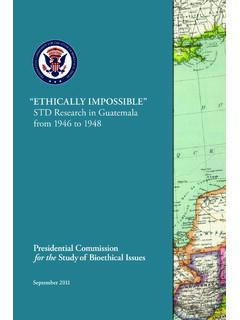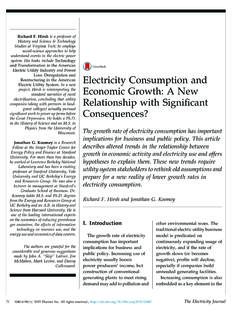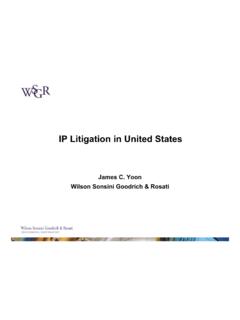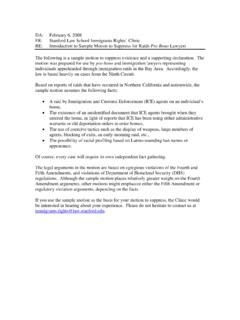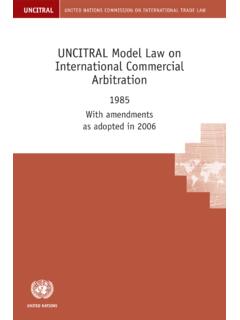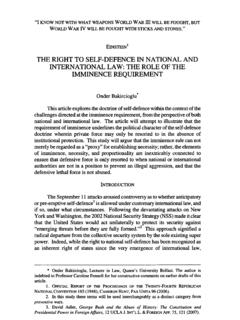Transcription of Public International Law: Treaties and International ...
1 Introduction to the Laws of Kurdistan, Iraq Working Paper Series Public International Law: Treaties and International Organizations Pub. 2016. Iraq Legal Education Initiative (ILEI) American University of Iraq, Sulaimani Stanford Law School Kirkuk Main Road Crown Quadrangle Raparin 559 Nathan Abbott Way Sulaimani, Iraq Stanford, CA 94305-8610 1. Preface to the Series: Introduction to the Laws of Iraq and Iraqi Kurdistan Iraq and Iraq's Kurdistan Region is at a compelling juncture in their histories. In the wake of the transition to a democratic state, the country and region economy has prospered and its institutions have grown more complex. As institutional capacity has grown, so too has the need for a robust rule of law.
2 An established rule of law can provide assurances to investors and businesses, while keeping checks on government and private powers and protecting citizens'. fundamental rights. Institutions of higher learning, such as universities and professional training centers, can and should play a key role in stimulating and sustaining this dynamic. Indeed, education is foundational. This paper is part of the Introduction to the Laws of Iraq and Iraqi Kurdistan, a series of working papers produced by the Iraqi Legal Education Initiative (ILEI) of Stanford Law School. This series seeks to engage Iraqi students and practitioners in thinking critically about the laws and legal institutions of Iraq and Iraqi Kurdistan.
3 Founded in 2012, ILEI is a partnership between the American University of Iraq in Sulaimani (AUIS) and Stanford Law School (SLS). The project' seeks to positively contribute to the development of legal education and training in Iraq. The working paper series devotes significant attention to pedagogy. By writing in clear and concise prose and consulting with local experts at each step of the writing process, the authors strive to make the texts accessible to diverse and important constituencies: undergraduate law students, lawyers and judges, government officials, members of civil society, and the International community. By discussing the Iraqi and Kurdish legal regimes and applying specific laws to factual situations, the authors model how to think like a lawyer for the reader.
4 They also use hypothetical legal situations, discussion questions, and current events to stimulate critical thinking and encourage active engagement with the material. These working papers represent the dedicated efforts of many individuals. Stanford Law School students authored the texts and subjected each working paper to an extensive editing process. The primary authors for the initial series including papers on Commercial Law, Constitutional Law, and Oil and Gas Law, were John Butler, Mark Feldman, David Lazarus, Ryan Harper, and Neil Sawhney under the guidance of the Rule of Law Program Executive Director, Megan Karsh. Jessica Dragonetti, Emily Zhang, and Jen Binger authored the remaining papers on domestic law.
5 Kara McBride, Cary McClelland, Neel Lalchandani, Charles Buker, Liz Miller, Brendan Ballou, and Enrique Molina authored papers primarily concerned with Iraq's engagement with International law. I also thank the former and current deans of Stanford Law School, Deans Larry Kramer and Liz Magill, for their financial support, and the Stanford Law School alum, Eli Sugarman ( , 2009), who acts as an advisor to the project. The faculty and administration of American University of Iraq in Sulaimani provided invaluable guidance and support throughout the writing process. Asos Askari and Paul Craft in particular played a leadership role in getting the program off the ground and instituting an introductory law class at AUIS.
6 Ms. Askari taught the first law class in the 2014 spring semester. Former presidents of AUIS, Dr. Athanasios Moulakis and Dr. Dawn Dekle, provided unwavering support to the project. And finally, a special thanks to Dr. Barham Salih, founder and Chair of AUIS, without whose foresight and vision this project would not have been possible. 2. Finally, the authors of this series of papers owe an extraordinary debt of gratitude to many thoughtful Kurdish judges, educators, lawyers, and others who work within Iraqi institutions for their critical insights. In particular, the textbooks received vital input from Rebaz Khursheed Mohammed, Karwan Eskerie, and Amanj Amjad throughout the drafting and review process, though any mistakes are solely the authors' responsibility.
7 ILEI plans to continue publishing working papers. All texts will be published without copyright and available for free download on the internet. To the students, educators, legal, and government professionals that use this set of working papers, we sincerely hope that it sparks study and debate about the future of Iraqi Kurdistan and the vital role magistrates, prosecutors, Public defenders, private lawyers, and government officials will play in shaping the country's future. Professor Erik Jensen Stanford Law School Rule of Law Program Palo Alto, California 3. TABLE OF CONTENTS. CHAPTER _: Treaties , International ORGANIZATIONS, CUSTOM, AND. OTHER ELEMENTS OF International LAW .. 5. 1. INTRODUCTION.
8 5. 2. Treaties : THE LANGUAGE OF International AGREEMENT .. 6. Treaty Elements and Purposes .. 6. Types of 8. Treaty Formation .. 10. Special Considerations: Reservations and Declarations .. 13. Treaty Implementation .. 14. Successor State Challenges .. 14. Treaty Enforcement .. 15. Review .. 17. 3. International ORGANIZATIONS: AGENTS OF International LAW .. 18. Intergovernmental Organizations: Background and Examples .. 18. Regional Governmental Organizations .. 24. Tribunals .. 26. International Non-Governmental 26. 4. International CUSTOM: CREATING International 27. History and Elements of Customary International Law .. 27. How Customary International Law, Treaties , and Organizations Interact.
9 29. Persistent Objectors .. 30. Jus Cogens .. 30. 5. ADDITIONAL SOURCES OF International LAW .. 30. General Principles of Law Recognized by the International Court of Justice .. 31. Opinions by Jurists and Scholars .. 31. 6. CASE STUDY: PROTOSTAN .. 32. 7. CONCLUSION .. 34. 4. Treaties , International ORGANIZATIONS, CUSTOM, AND. OTHER ELEMENTS OF International LAW. CHAPTER OBJECTIVES. To understand the main sources of International law, such as Treaties , International organizations, and custom. To learn the ways in which Treaties , International organizations, custom, and legal scholarship interact to create effective rules in the International system. To explore the application of these rules to Iraq and how they affect the Kurdistan region.
10 To lay the foundation for further study of International law, including International crimes committed by state actors and International transactions made by private actors, among other topics. 1. INTRODUCTION. In 1995, representatives from Kazakhstan and the European Union (EU) signed a major treaty, which is a formal agreement, governed by International law, which imposes obligations on the parties. This particular treaty, called the Partnership and Cooperation Agreement, created a new era of free trade between the parties. Kazakhstan and the EU agreed not to tax each other's oil and gas, as well as other measures to encourage the creation of new small businesses and corporations across The treaty produced profound results.
